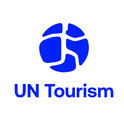Members Plan Coordinated Restart of Tourism Across Asia and The Pacific
Tourism leaders from across Asia and the Pacific have met to plan the sector’s restart and recovery even as borders remain closed throughout the region.
The 33rd Joint meeting of the World Tourism Organization’s Commission for East Asia and the Pacific and its Commission for South Asia (14 September 2021) came on the back of a challenging year for the region. The first to feel the impacts of the pandemic, the tourism sector of Asia and the Pacific has also been the hardest hit, recording a 95% fall in international arrivals in the first five months of 2021.
Coordinated restart and recovery
With UNWTO data also showing that this region continues to have the largest proportion of destinations closed to tourists, the Member States taking part in the virtual meetings focused on the coordination of policy measures and strategies to accelerate the recovery of tourism activities in the region. These include the phased lifting on travel restrictions and the introduction of travel corridors. Looking ahead, Members also agreed on the importance of upgrading the skills of the tourism labour force, as well as embracing innovation and digital transformation.
UNWTO Secretary-General Zurab Pololikashvili said: “The Asia and Pacific region has a proven record as a dynamic tourism destination. With the right policy measures and strong coordination, destinations can start safely welcoming back international visitors, thereby allowing tourism to deliver on its potential as a driver of recovery and inclusive growth.”
Elections for the Future
The meetings attracted around 120 participants from 25 of UNWTO’s 29 Member States in the region under the chairmanship of Malaysia and the Maldives. Ahead of the 24th Session of the UNWTO General Assembly (30 November – 3 December 2021, Marrakesh, Morocco) the meeting concluded with elections and nominations for positions within key UNWTO bodies.
India and Iran were nominated to represent South Asia on the UNWTO Executive Council; Cambodia and Maldives were nominated to represent the region as Vice-Presidents of the 24th General Assembly, while Samoa and Bhutan will serve the members on the Credentials Committee.
Malaysia and the Maldives were nominated as Chairpersons to serve their Commissions for a second term, with Fiji and Japan appointed to play the role of Vice-Chairs for the Commission for East Asia and the Pacific, while Bangladesh and Iran will serve as Vice-Chairs for the Commission for South Asia. Finally, Maldives was nominated as the venue for the next Joint Meeting of the two Commissions (CAP and CSA) in 2022, and Indonesia was endorsed as the host of World Tourism Day 2022.
About UN Tourism
The World Tourism Organization (UN Tourism) is the United Nations agency responsible for the promotion of responsible, sustainable and universally accessible tourism.
As the leading international organization in the field of tourism, UN Tourism promotes tourism as a driver of economic growth, inclusive development and environmental sustainability and offers leadership and support to the sector in advancing knowledge and tourism policies worldwide.
Our Priorities
Mainstreaming tourism in the global agenda: Advocating the value of tourism as a driver of socio-economic growth and development, its inclusion as a priority in national and international policies and the need to create a level playing field for the sector to develop and prosper.
Promoting sustainable tourism development: Supporting sustainable tourism policies and practices: policies which make optimal use of environmental resources, respect the socio-cultural authenticity of host communities and provide socio-economic benefits for all.
Fostering knowledge, education and capacity building: Supporting countries to assess and address their needs in education and training, as well as providing networks for knowledge creation and exchange.
Improving tourism competitiveness: Improving UN Tourism Members' competitiveness through knowledge creation and exchange, human resources development and the promotion of excellence in areas such as policy planning, statistics and market trends, sustainable tourism development, marketing and promotion, product development and risk and crisis management.
Advancing tourism's contribution to poverty reduction and development: Maximizing the contribution of tourism to poverty reduction and achieving the SDGs by making tourism work as a tool for development and promoting the inclusion of tourism in the development agenda.
Building partnerships: Engaging with the private sector, regional and local tourism organizations, academia and research institutions, civil society and the UN system to build a more sustainable, responsible and competitive tourism sector.
Our Structure
Members: An intergovernmental organization, UN Tourism has 160 Member States, 6 Associate Members, 2 Observers and over 500 Affiliate Members.
Organs: The General Assembly is the supreme organ of the Organization. The Executive Council take all measures, in consultation with the Secretary-General, for the implementation of the decisions and recommendations of the General Assembly and reports to the Assembly.
Secretariat: UN Tourism headquarters are based in Madrid, Spain. The Secretariat is led by the Secretary-General and organized into departments covering issues such as sustainability, education, tourism trends and marketing, sustainable development, statistics and the Tourism Satellite Account (TSA), destination management, ethics and risk and crisis management. The Technical Cooperation and Silk Road Department carries out development projects in over 100 countries worldwide, while the Regional Departments for Africa, the Americas, Asia and the Pacific, Europe and the Middle East serve as the link between UN Tourism and its 160 Member States. The Affiliate Members Department represents UN Tourism's 500 plus Affiliate members.
